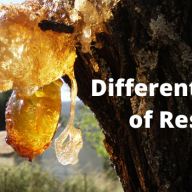BHAGVAD GITA AND LEADERSHIP
A Catalyst for Organisational Transformation
यं हि न व्यथयन्त्येते पुरुषं पुरुषर्षभ ।
समदुःखसुखं धीरं सोऽमृतत्वाय कल्पते ॥
yaṅ hi na vyathayantyētē puruṣaṅ puruṣarṣabha ৷
samaduḥkhasukhaṅ dhīraṅ sō.mṛtatvāya kalpatē ৷৷
That person who is not affected by happiness and distress, and remains steady in both, becomes eligible for liberation.
EMOTIONAL STABILITY The ability to stay calm or not being upset when facing with pressure or stress. Regardless of the circumstances and when presented with a problem, you are able to maintain calm and not let your emotions control your actions.
The Bhagavad Gita identifies the nature of emotions and shows the way to come out of the darkness of emotional instability.
Arjuna was a strong willed man with stable emotional temperament. He showed exemplary restraint and discipline, even at the most challenging times. He was emotionally intelligent as could identify the emotions overpowering him. Then what stopped him from choosing the right course of action?
Even the best of men feel helpless in trying times. How can a person become emotionally stable? For the common man, Krishna advises the path of detached action. Detachment is essential for emotional intelligence.
Even the best of men feel helpless in trying times. How can a person become emotionally stable? For the common man, Krishna advises the path of detached action. Detachment is essential for emotional intelligence.
The effective leaders are able to remain calm in times of crises. When faced with anger and disappointment they manage these feelings and channel them into productivity.
Emotionally stable leaders have a high degree of self-esteem which gives them confidence and this is an important complementary trait in a leader. Leaders who manage their emotions are able to set aside the stress, anger and frustration and make rational decisions rather than emotion-driven decisions.
It takes an emotionally stable person to solve conflicts within an organisation. Emotionally intelligent leaders are well equipped to handle conflicts and provide resolution by expertly handling disagreements that arise between employees and other stakeholders of the organisation. They are aware of the emotions of the people involved in a conflict hence find a way to resolve issues to best suit the situations and the parties involved. Leaders with high emotional intelligence are tend to be less biased or subjective towards individuals.
Conclusively, emotional stability helps leaders to become even better leaders. It helps them build on their character and capabilities to execute their leadership duties more effectively.
कर्मण्येवाधिकारस्ते मा फलेषु कदाचन ।
मा कर्मफलहेतुर्भुर्मा ते संगोऽस्त्वकर्मणि ॥
karmaṇyēvādhikārastē mā phalēṣu kadācana.
mā karmaphalahēturbhūrmā tē saṅgō.stvakarmaṇi৷৷
You have a right to perform your prescribed duties, but you are not entitled to the fruits of your actions. Never consider yourself to be the cause of the results of your activities, nor be attached to inaction.
DETACHMENT means to disassociate yourself from intended outcomes. Detachment from the result is the way to a happy and painless life.
Here Krishna advises Arjuna to detach from being concerned with whether or not the duty bound action is successful, instead he should prepare himself to perform the action best of his ability. Krishna teaches Arjuna “The Law of Karma”- the discipline against grief and overwhelming emotion that will free him from the bondage of action and its consequences.
A good leader is one who rules with a sense of detachment. A Leader’s success depends on whether he is aligned to wisdom, what Hindus would call atma-gyan and Buddhists would call dhamma, where he seeks not to indulge his desires, but to outgrow his desires.
If a leader, is truly detached from the outcome, they will find equanimity to be their touchstone. Equanimity, the outworking of detachment, is reflected in the calm, even-tempered, and serene personality of one who is simply open to accepting what is. Such a person can lead without wasting energy through either the need for or the expectation of approval or a predetermined outcome. Such a person acts out of peace.
In turn, the peaceful action allows others to see an alternative way of perceiving something, because no one is trying to convince them of anything. They are given the ideas and the space to consider them. Then, if they so choose, they can change their minds in privacy while retaining their dignity intact.
The leader who is detached from the outcome is part of the principle for which they stand and is therefore part of the resolution or transcendence of the problem. On the other hand, a leader becomes part of the problem when they are attached to defending a position and its necessary outcome. A leader’s detachment and equanimity serve to make followership an exciting prospective because people feel safe in the care of one with equipoise of character.
The Bhagavad Gita contains universal principles which can very well applied to corporate setting. Keep an open mind and enlarge the circle of excellence. The real test of knowledge and wisdom is to remain unmoved, definite and certain in uncertain, troubled, volatile, violent and turbulent times. Be active, decisive and risk-taking for development and better governance. Bhagavad Gita can transform your life. It can bring a sea change in our life, even if a little is followed. Whether it is corporate world or an individual’s life, the Bhagavad Gita’s lessons are applicable to one and all in all walks of life, in all times across the globe.
RAJNI DIGANI
Bansal Trading Company
The author has taken words of wisdom, reference points and excerpts from various books and articles and would like to thank those authors and acknowledge them.
Rajni Digani











Thanks for the Inspiration, that was a perfect example of how one can apply learnings of Bhagvad Gita in his professional life.
Very Nice.
It’s very true lines…and above lines not just for Krishna and Arjun..it’s for all human being …
Lord Buddha also had same kind of thoughts….
It’s really amazing to get to know ….that a thousand
of years old text still employs right and perfect for these day’s situations …….thanx for coming out with such wisdom. congrats ! Best of luck!
well written mam
My compliments for attempting to write on such a topic. A topic that only you could have thought of and could have found important to share with others. Renunciation in the Gita does not refer to renunciation of action but connotes, renunciation in action. It means performing one’s duties but with a detached mind and without thought of worldly gains. If someone has to do justice to your blog, they will have to be calm, patiently understand, comprehend and hopefully adapt your blog in toto. Every formation of thought, reflects an insight into a life changing and transforming fork of change. A direction one must take, not for success but for peace. Congratulations on your first blog.
Thank you for taking time out to read my blog and put in the good words for me. As a mentor, your opinion carries a lot of weight.
I’m very grateful to have been afforded the opportunity to attend. Thank you!
Excellent. Very well explained.